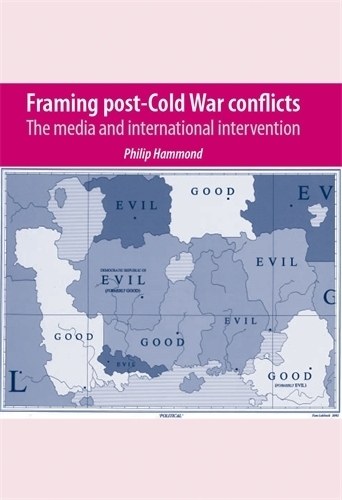
Framing Post-Cold War Conflicts: The Media and International Intervention
(Paperback)
Available Formats
Publishing Details
Framing Post-Cold War Conflicts: The Media and International Intervention
By (Author) Philip Hammond
Manchester University Press
Manchester University Press
1st December 2011
United Kingdom
Classifications
Tertiary Education
303.6
Physical Properties
Paperback
256
Width 156mm, Height 234mm
Description
Since the end of the Cold War there have been many competing ideas about how to explain contemporary conflicts, and about how the West should respond to them. This study, newly available in paperback, examines how the media interpret conflicts and international interventions, testing the sometimes contradictory claims that have been made about recent coverage of war. Framing post-Cold War conflicts takes a comparative approach, examining UK press coverage across six different crises. Through detailed analysis of news content, it seeks to identify the dominant themes in explaining the post-Cold War international order, and to discover how far the patterns established prior to 11 September 2001 have subsequently changed. Based on extensive original research, the book includes case studies of two 'humanitarian military interventions' (in Somalia and Kosovo), two instances where Western governments were condemned for not intervening enough (Bosnia and Rwanda), and the post-9/11 interventions in Afghanistan and Iraq. -- .
Reviews
'Shows via compelling empirical data and analyses that the United Kingdoms print media have systematically framed post-Cold war conflicts in ways that put their own governments and leaders in a favorable light. As these conflicts have almost invariably involved invading other and weaker countries, officials readily assume rights of aggression and a world of sovereign inequality; and so do the mainstream media. This is a valuable contribution both to media studies and the modalities of conflict in the age of humanitarian intervention. '
Edward S. Herman, Professor Emeritus of Finance at the Wharton School, University of Pennsylvania and co-author with Noam Chomsky of Manufacturing Consent and The Political Economy of Human Rights
Author Bio
Philip Hammond is Reader in Media and Communication at London South Bank University
